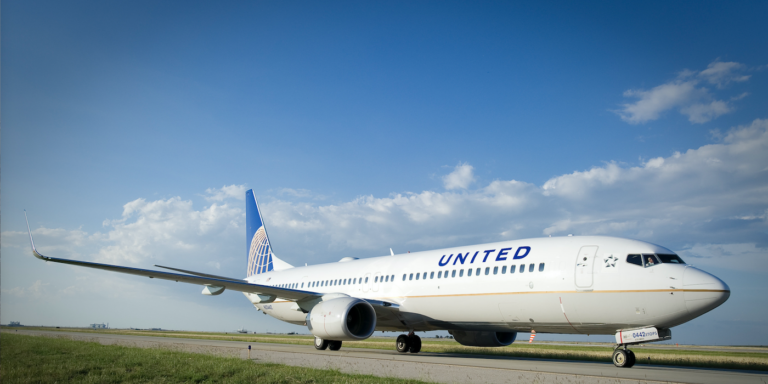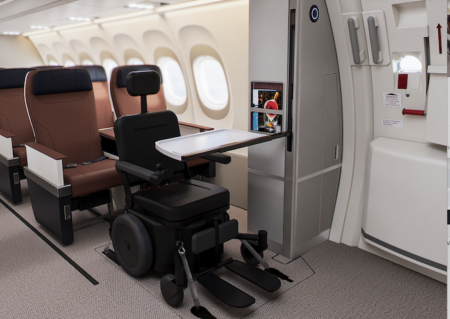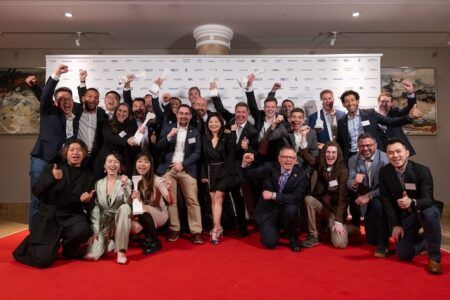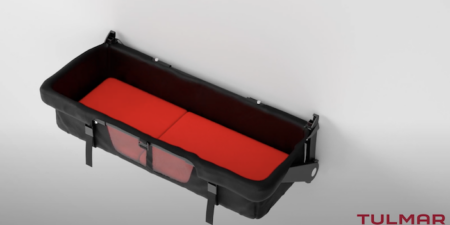United Airlines has announced that it is implementing an air travel safety initiative whereby airflow volume is maximised for all mainline aircraft HEPA (high-efficiency particulate air) cabin air filtration systems during the entire boarding and deplaning process, in order to help further reduce the spread of Covid-19.
In combination with the HEPA filters, the air conditioning and pressurisation system onboard United’s mainline aircraft recirculates the air every two-to-three minutes and removes a claimed 99.97% of particles – including viruses and bacteria during both ground and air operations. United says that these measures make the air onboard a plane “significantly cleaner” than people typically experience in restaurants, grocery stores, schools or even some hospitals. United pilots and ground staff are working to implement this new procedure for mainline aircraft beginning 27 July.
“We know the environment on an aircraft is safe and because the airflow is designed to minimise the transmission of disease, the earlier we maximise airflow over our HEPA filtration system, the better for our crew and our customers,” said Scott Kirby, United’s CEO.
“The quality of the air, combined with a strict mask policy and regularly disinfected surfaces, are the building blocks towards preventing the spread of Covid-19 on an airplane,” added Kirby. “We expect that air travel is not likely to get back to normal until we’re closer to a widely administered vaccine – so we’re in this for the long haul. And I am going to keep encouraging our team to explore and implement new ideas, new technologies, new policies and new procedures that better protect our customers and employees.”
On commercial aircraft, fresh air flows downward into the cabin from ceiling vents and exits the cabin at the floor and sidewalls. That air is then routed through the HEPA filters and mixed with fresh, outside air before returning back to the cabin. According to Boeing, that top-to bottom pattern, combined with frequent air exchange, helps minimise front-to-back air movement and reduces the potential for spread of contaminants from people, such as through sneezing or coughing.
The system replaces the entire volume of cabin air every two-to-three minutes by providing 50% HEPA filtered, recirculated air mixed with 50% outside air, which allows a constant flow of either fresh or HEPA-filtered air throughout the cabin. In addition, United has been partnering with the Defense Advanced Research Projects Agency (DARPA) to study how effectively the unique airflow configuration onboard an aircraft can prevent the spread of aerosolised particles among passengers and crew.
During a review of its cleaning and safety procedures with its United CleanPlus partners, Clorox and the Cleveland Clinic, the airline identified new opportunities during boarding and deplaning to help prevent the spread of the coronavirus. Already, the airline boards passengers back-to-front and deplanes five rows at a time. The new air filtration procedure on mainline aircraft will maximise airflow volume and recirculation of cabin air for passengers from the moment they step onboard.
“HEPA filters are an effective way to ensure clean air on an aircraft,” said Dr James Merlino from The Cleveland Clinic. “United’s new strategy of running the air filtration and circulation systems at maximum volume well before passengers board and until they deplane, adds one more layer of protection. In addition to air filtration, we have worked with the airline to enact measures such as mandatory masking, health screenings, disinfection, and touchless systems, as we believe layering on precautions, more than any one strategy alone, helps create the safest environment possible.”





